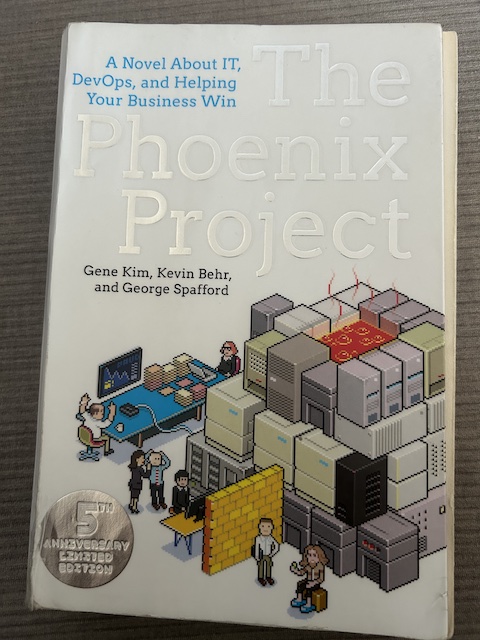Deep into DevOps
 |
Anyhoo, this was a weird book. It is a hero tale of an IT manager, who suddenly gets promoted to a VP of IT operations and is suddenly responsible for saving a multi-billion company from serious trouble and his entire IT team from being outsourced. And naturally, he accomplishes this with the help of a mysterious stranger who brings in his sensei-like wisdom about DevOps, and a few people who are eager to grasp onto these pearls of wisdom escaping his lips.
As a book, it's shit. Characters are uninteresting, plot is thinner than the paper the book was printed on, and I could not help but facepalm occasionally. There are three kinds of people in this book: Smart and Wrong, Stupid and Wrong, and Smart and Right. Of course the people who are Smart and Wrong become people who are Smart and Right, because of DevOps wisdom sprinkled by the protagonist and his sensei. And people who are Stupid and Wrong are the main antagonists here, and they of course lose. Because the hero story, right?
But as an illustrated case study for DevOps principles, it is brilliant. Basically this is a list of all different issues your company might be having, ranging from too much work-in-progress to managing unplanned work to managing conflicting business priorities and whatnot. It's easy to put yourself in the shoes of the protagonist, and just execute smart plans using solid principles to solve each problem as they come along. In that sense, it's not that different from a lot of hero epics, such as The Martian by Andy Weir (which, unlike this, is actually a good book that I recommend).
This book is an interesting approach. It has certain, well, aynrandistic preachiness in it, but still a free-flowing fiction might be in some cases a good way to make your reader to think about the ideas you have. So if you read it as a marketing text on DevOps, it's pretty good. It's easy and fast to read, doesn't really slow down anywhere, and comes with a useful appendix of an excerpt of the business book they really want you to buy after this one.
Just don't expect a great narrative, well-rounded characters, or actually, well, caring about any of them.
|
More info...
Comments?
Back to weblog
|
| "Main_blogentry_270424_1" last changed on 27-Apr-2024 13:15:06 EEST by JanneJalkanen. |




Comments
555--AnonymousCoward, 03-May-2024
555
--AnonymousCoward, 05-May-2024